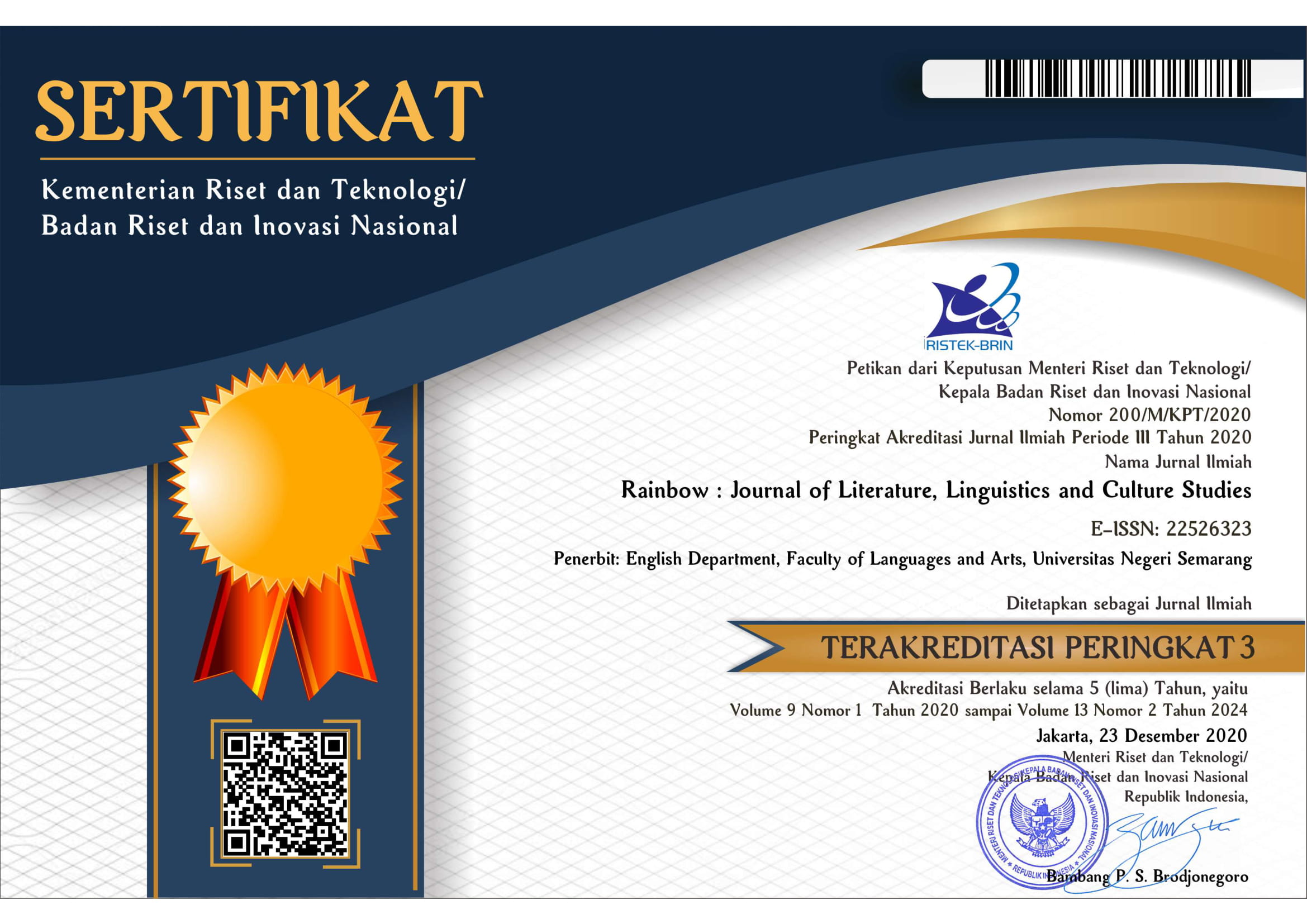THE INFLUENCE OF SOCIETY IN THE MAIN CHARACTER’S SELF-IDENTITY AS AN INDIAN IMMIGRANT REFLECTED IN THE NAMESAKE NOVEL BY JHUMPA LAHIRI
Abstract
This study analyzed an Indian-immigrant’s self-identity development. This final project was aimed at analyzing how society influenced the main character’s self-identity development reflected in The Namesake novel by Jhumpa Lahiri. The objective of the study is answering the statement of problem: first, find out how the the society influences the main character’s self-identity as an Indian immigrant as reflected in Lahiri’s The Namesake; second, to describe how the main character’s self-identity develops as portrayed in Lahiri’s The Namesake. I used Jhumpa Lahiri’s novel The Namesake as the object of this study. This study is a descriptive qualitative study with psychology of literature as the approach. It was because the data of the study are in the form of words, phrases, sentences, narrations, and dialogues. The data were gained by reading the novel thoroughly, identifying, inventroying, and clasifying; then the analysis was done by selecting and explaining. There were several findings as the investigation result. First, the identity crisis on the main character happened after he made his interaction with society that had a different culture to his own culture. This was because the different comprehensions about identities between him, his family culture, India, and the dominant culture environment, America. Finally, he changed his given name to another name that showed his changed self-identity at a whole. This changing name represented a change of culture that he chose. Second, after various conflicts regarding names and cultural identity that he chose, he knew that changing his identity because of the different societies’ influences did not solve his problem. He realized that move dynamically would help him to live easier in two different cultures.References
Ancestry. Gangguli Family History. Retrieved from http://www.ancestry.com/facts/Gangguli-name-meaning.ashx [Accesed 14 August 2014]
Deluzain, H.Edward. The Etimology and History of First Names:Name and Personal Identity. Retrieved from http://www.behindthenames.com/articles/3.php [Accessed 24 July 2014]
Hall, Stuart. 1997. Representation: Cultural Representation and Signifying Practices. London: Sage Publication
Lahiri, Jhumpa. 2003. The Namesake. India: Houghton Mifflin Company.
Prabasmoro, Aquarini Priyatna. 2006. Menamai Saya -Perjalanan Menuju Diri yang Baru. Yogyakarta: Jalasutra.
Woodward, Kathryn (Ed.). 1997. Identity and Difference. London: Sage Publication







